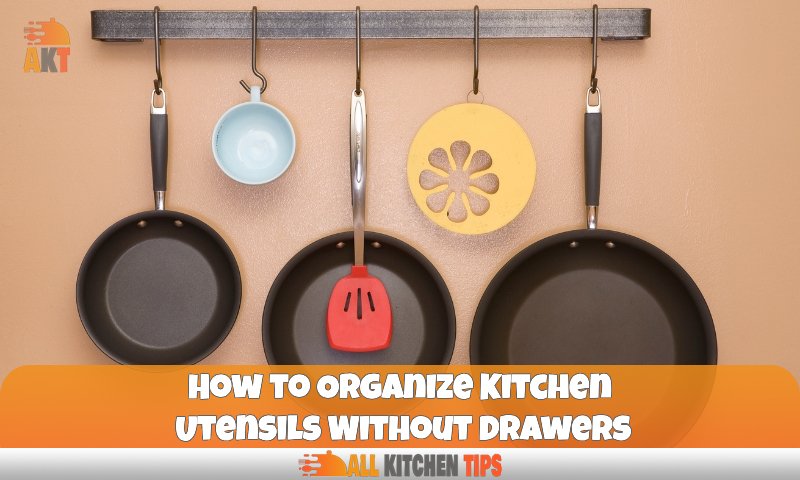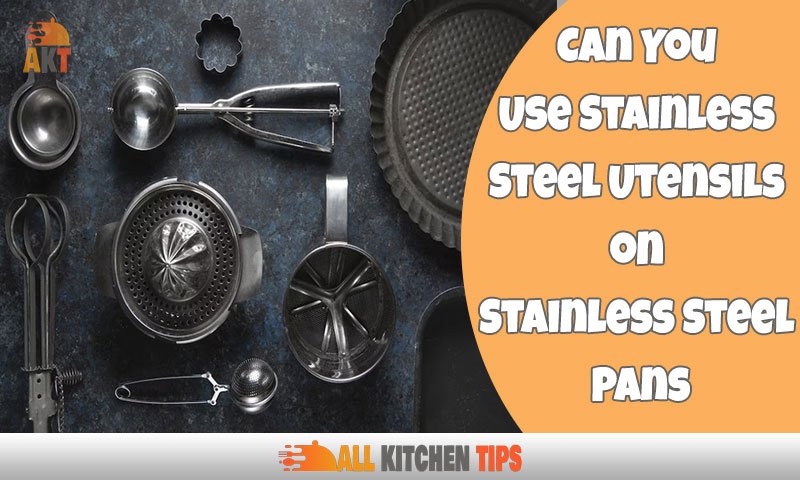Yes, olive wood is a good choice for cooking utensils due to its durability and natural antimicrobial properties. Olive wood has been used for centuries to make cooking utensils due to its durability, hardness, and natural antimicrobial properties.
It is a sustainable option as olive trees are not cut down for the purpose of making utensils, and it offers a beautiful and unique appearance to kitchen tools. Olive wood utensils are resistant to staining and won’t scratch nonstick cookware, making them a popular choice among home cooks and professional chefs alike.
So, if you are considering upgrading your kitchen tools, olive wood utensils are worth considering.
Benefits Of Olive Wood Cooking Utensils
Olive wood has been used in the creation of kitchen utensils for centuries, and for good reason! Aside from its beautiful aesthetic, olive wood offers a range of benefits in the kitchen. In this blog post, we’ll delve into the advantages of using olive wood cooking utensils, including their natural and eco-friendly properties, antibacterial qualities, durability, and versatility.
Natural And Eco-Friendly
Did you know that olive wood is one of the most sustainable and eco-friendly materials out there? Here are some other key points to consider:
- Olive wood is made from the pruned branches of the olive tree, providing a second life to a material that would otherwise go to waste.
- It’s completely natural and doesn’t include any chemicals or synthetic materials, making it ideal for those who are environmentally conscious.
- Olive wood also doesn’t scratch or damage non-stick cookware, which means you can use it without having to worry about the impact it’ll have on your pots and pans.
Antibacterial
When it comes to cooking utensils, hygiene is paramount. Using an antibacterial material like olive wood can help keep your kitchen clean, and here’s why:
- Olive wood contains natural oils, which have antibacterial properties that can protect against harmful bacteria such as E. coli and salmonella.
- These oils also make the wood more resistant to water damage and stains, which means you can keep it clean and hygienic with ease.
- Unlike synthetic materials, olive wood won’t absorb odors or flavors, so it’ll maintain its natural scent and beauty over time.
Durable And Versatile
Aside from its environmental and health benefits, olive wood is also incredibly durable and versatile. Here’s what you need to know:
- Olive wood is strong and lightweight, which means it can withstand drops and spills without breaking or chipping.
- Due to their unique pattern and texture, olive wood utensils don’t scratch non-stick coatings, unlike metal utensils that can damage surfaces easily.
- Olive wood utensils are suitable for use with high heat, making them perfect for use with soups and stews, as well as for general cooking use.
Using olive wood cooking utensils offers numerous benefits, including environmental sustainability, antibacterial properties, durability, and versatility. It’s no wonder this material has stood the test of time and remains a popular choice for chefs and home cooks alike.
Types Of Olive Wood Cooking Utensils

Olive wood is a popular choice of wood when it comes to cooking utensils. It not only adds a touch of elegance to your kitchen but it is also known for its durability and resistance to water. We will delve into the types of olive wood cooking utensils that are available on the market.
Spoons And Spatulas
Olive wood spoons and spatulas are a popular addition to any kitchen. Here are the key points to keep in mind:
- Wooden spoons are perfect for stirring and mixing, as they won’t scratch non-stick pans or pots.
- The wooden spatulas are ideal for flipping pancakes, eggs, or omelets without damaging your cookware.
- Olive wood spoons and spatulas are gentle on your hands and won’t heat up quickly, making them easy to handle while cooking.
Tongs And Whisks
Olive wood tongs and whisks are perfect for grilling, baking, and cooking. Here’s what you should know:
- Olive wood tongs are sturdy and can grip anything from meats to vegetables. They are also useful for serving food.
- Olive wood whisks are great for mixing sauces and batters. They are durable and won’t scratch or damage your cookware.
Cutting Boards And Serving Trays
Olive wood cutting boards and serving trays are unique and beautiful additions to any kitchen. Here are their key benefits:
- Olive wood cutting boards are solid and long-lasting, making them perfect for preparing meats, fruits, and vegetables.
- Olive wood serving trays are not only elegant but also practical and durable. They can hold food, glasses, and bottles securely.
These are the various types of olive wood cooking utensils you can use in your kitchen. Not only are they beautiful, but they are also practical and long-lasting. Try adding some olive wood utensils to your kitchen and see the difference they make in your cooking.
How To Care For Olive Wood Cooking Utensils

Is Olive Wood Good For Cooking Utensils?
Olive wood cooking utensils have been gaining popularity in recent years due to their durability and natural beauty. Many people prefer these utensils as they are eco-friendly and sustainable. But, how good are they at cooking? Let’s explore this in further detail.
How To Wash And Maintain Olive Wood Utensils
Proper cleaning and maintenance are essential for making your olive wood utensils last a long time. Here are some tips on how to care for your utensils:
- Hand-wash olive wood utensils in warm soapy water.
- Never soak them or put them in the dishwasher.
- Rinse them thoroughly with water and dry them immediately with a towel.
- Avoid letting them air dry, as this can cause them to crack or split.
- Do not expose them to extreme temperatures or humidity.
How To Preserve And Enhance Their Natural Beauty
Preserving and enhancing the natural beauty of your olive wood utensils can make them look even better with age. Here are some tips on how to achieve this:
- Rub olive oil onto the utensils with a soft cloth to restore any lost shine.
- Do this regularly to prevent them from drying out too quickly.
- You can also apply beeswax or mineral oil to protect the surface from damage.
- Do not use vegetable or cooking oil, as these can go rancid and leave an unpleasant smell.
How To Prevent Them From Cracking Or Splitting
Since olive wood is a natural material, it can crack or split if not cared for properly. Here are some ways to prevent this from happening:
- Store them in a cool, dry place away from direct sunlight.
- Do not leave them in water for too long, as this can cause them to absorb moisture and warp.
- Use a soft sponge or cloth to avoid scratching the surface when cleaning them.
- Avoid using harsh chemical cleaners that can damage the wood.
Olive wood is an excellent choice for cooking utensils due to its durability and natural beauty. However, to make the most of your investment, it is essential to care for them properly using the tips provided. By following these guidelines, you can ensure your olive wood utensils remain beautiful and functional for years to come.
FAQs
Can Olive Wood Utensils Be Used For Cooking?
Yes, olive wood utensils are safe to use for cooking. They are durable, heat-resistant, and won’t scratch your cookware.
How Do You Care For Olive Wood Utensils?
To care for olive wood utensils, hand wash them with mild soap and lukewarm water. Dry them immediately, and periodically condition them with food-grade mineral oil.
Are Olive Wood Utensils Environmentally Friendly?
Yes, olive wood utensils are environmentally friendly. They are biodegradable and come from a renewable resource, the olive tree.
Do Olive Wood Utensils Stain Easily?
Olive wood utensils can stain, but it’s normal for these utensils to darken as they age. However, regular cleaning and proper maintenance can prolong their use.
How Long Do Olive Wood Utensils Last?
Olive wood utensils can last for years if they are properly cared for. They are resistant to cracking, splitting, and breaking, making them highly durable.
Conclusion
As we come to the end of this exploration, it’s clear that olive wood is a great option for cooking utensils. Not only is it beautiful and unique, but it’s also incredibly durable and can withstand high temperatures. The fact that it’s naturally antibacterial is also a huge plus in terms of food safety.
While there are some concerns about sustainability, it’s worth noting that many manufacturers are now engaging in responsible harvesting practices. Ultimately, whether you choose olive wood or another type of wood for your cooking utensils will depend on your personal preferences and priorities.
However, if you’re looking for a high-quality and stylish option that’s also functional, olive wood is definitely worth considering. Its impressive combination of strength, beauty, and safety makes it a top choice for discerning cooks around the world.





